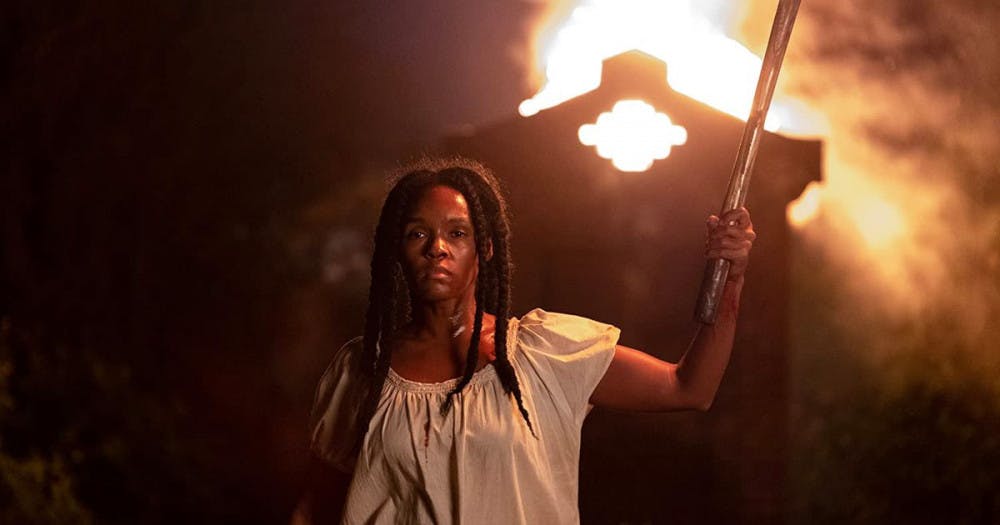“Antebellum” follows the fictional character Veronica Henley, who is a New York Times best-selling author that is kidnapped by white people and sent to a modern day slave plantation. While she is now a slave, she must battle her way back to the freedoms and the life she once knew as a “free” successful Black woman.
This film stars Janelle Monáe, who burst into the entertainment industry with her critically acclaimed debut album “The ArchAndroid”. Monáe has also been a part of many Oscar-nominated films throughout her career, such as “Hidden Figures”, “Harriet”, and “Moonlight”. Seeing that she was the main character in this film made me excited for its release because anyone who knows me knows how much I love Janelle Monáe.
Other notable actors in this film include Jena Malone, known for her roles in “The Hunger Games” movie series, Eric Lange, whom I haven’t seen since my teenage days watching him play Mr. Sikowitz in Nickelodeon’s “Victorious”, and Oscar-nominated actress Gabourey Sidibe, most known for playing the title character in the film “Precious”.
Seeing all these seasoned and acclaimed artists sharing one space is often a recipe for an amazing film. Unfortunately, that wasn’t the case.
With the exception of Monáe, many of the characters were very one dimensional. Malone played the overtly racist white woman who uses Black bodies to perpetuate America's enthusiasm when it comes to maintaining the system of capitalism. Lange played the racist confederate soldier who repeatedly rapes Black female slaves. Sidibe played the character who was there solely for comic relief for the brief moments in the film where we could have a glimpse into the personal life of Veronica Henley before she was kidnapped.
Besides the one-dimensional characters, it was hard for me to watch yet another film depicting Black folks in chains for white America to understand that their ancestors had and still have an obsession with racism. At this point it’s not even entertaining to me, it just adds another layer of trauma on top of all the other examples in the media of Black folks being seen as second-class citizens in a country that we built.
Movies with this same story and this general theme of racism have been recycled over and over and over again. From “Birth of a Nation”, to “Roots”, to “Django Unchained”, to “12 Years a Slave”. There are more than enough examples from Hollywood to show that white supremacy is the spark that has ignited the oppression and suppression of Black folks and people of color in this country.
Another thing that bugged me throughout the film was the fact that we never saw the reaction of Henley’s family after she was taken away. We never got to see her husband and daughter deal with the fact that their loved one might never return home.
This film was also categorized under horror, and I honestly thought it was more suspenseful than scary. But who knows, maybe I’m just used to watching the same story.
My biggest issue overall with this film is the ending and the never-ending narrative of white people trying to create stories where they can’t access the same experiences of the actual suffering of Black people. I say this because many times when white creatives try to pen stories that deal with American slavery, a lot of elements where your target audience can learn and grow from get lost in the failed narrative that the writer was trying to create. Let Black folks be the ones who create Black stories.
With the ending, there wasn’t much closure, which is one of my biggest pet peeves when watching films. I hate having to draw my own conclusions. I can see why the writers created an ending like this and yes, Henley got the revenge she deserved, but what about her family? What happens next? Did the other “slaves” also gain “freedom”?
To draw your own conclusions, “Antebellum” is available for streaming on Amazon Prime Video, YouTube, Vudu, and Google Play Movies & TV.
Antebellum Review: Do we really need another Hollywood depiction of Black people in chains in order to understand America has an obsession with racism?

Heads up! This article was imported from a previous version of The Campus Citizen. If you notice any issues, please let us know.




